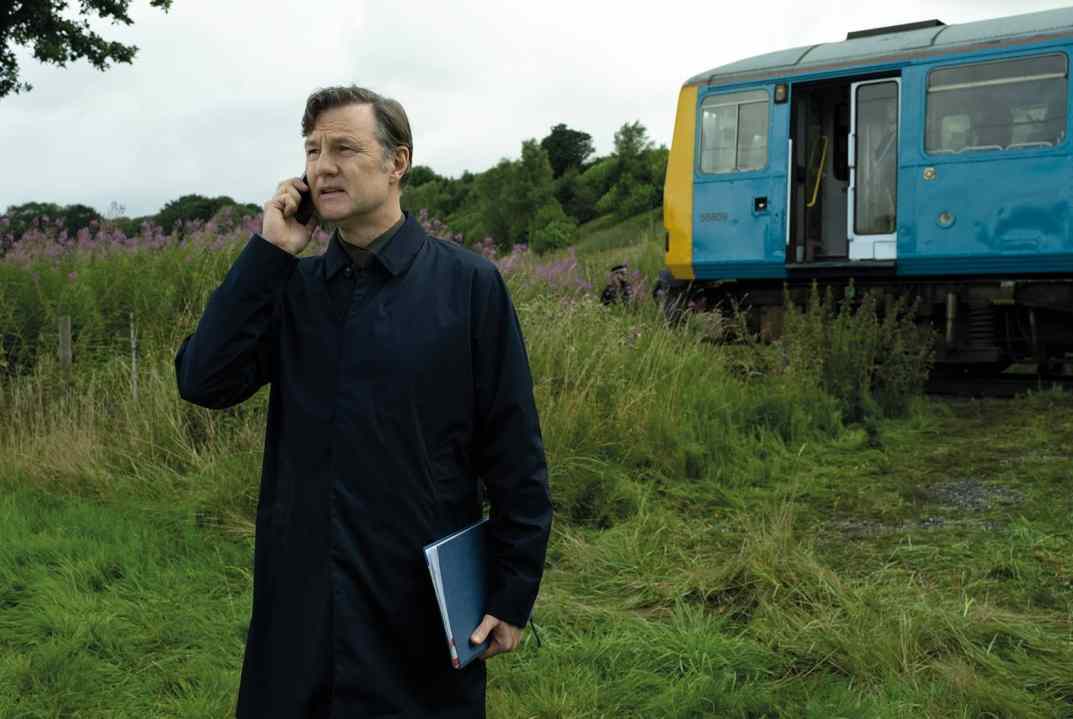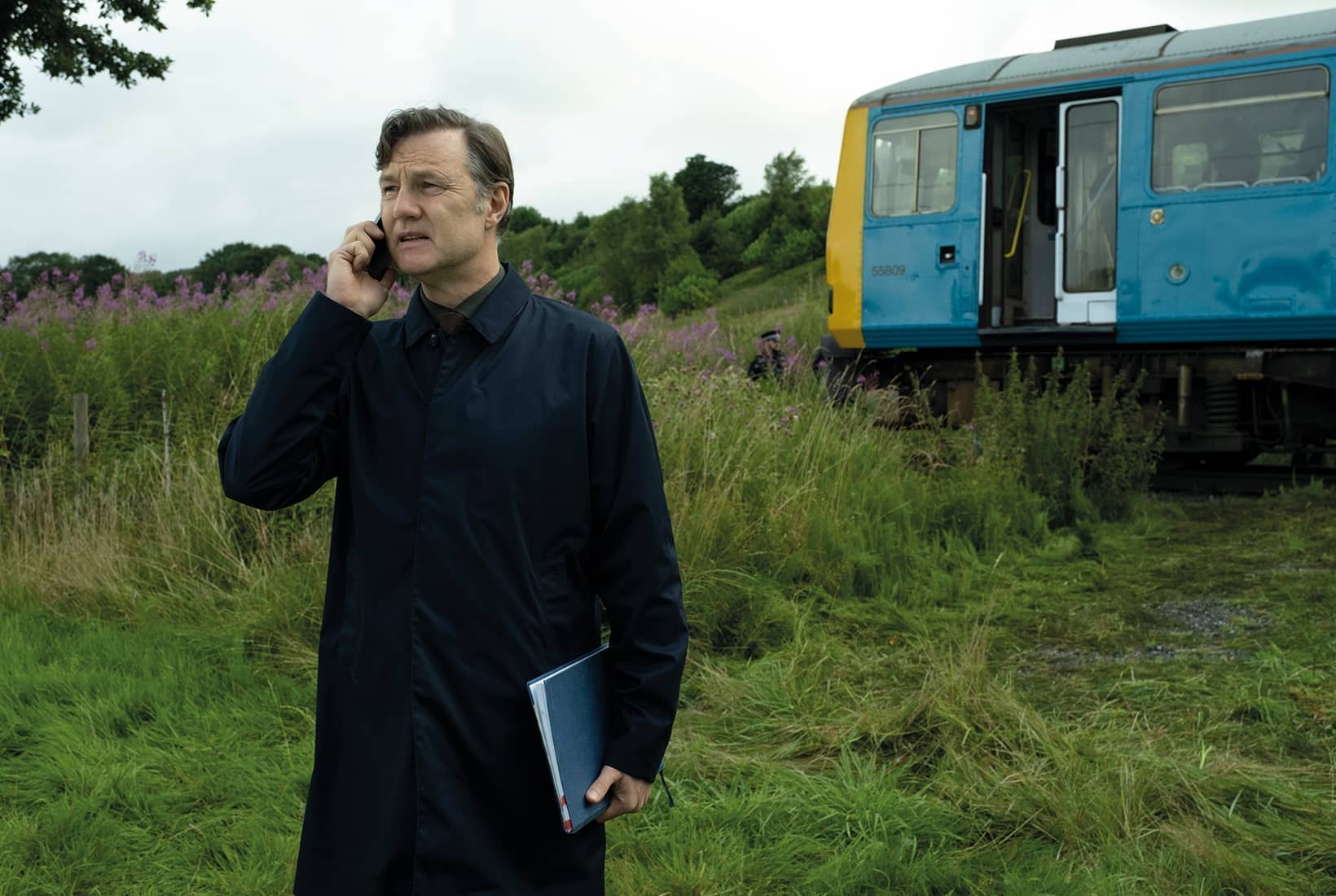James Graham has made his considerable name writing political-based dramas of a highly unusual type: non-polemical ones. And this certainly applies to his television work as well as his stage plays. Coalition (about the 2010 Conservative-Lib Dem alliance) and Brexit: The Uncivil War (which gave Dominic Cummings the signal honour of being played by Benedict Cumberbatch) both went so far as to suggest that most politicians try to do the right thing. Even when he abandoned politics to supply the lockdown hit Quiz, Graham’s unfashionable commitment to centrism remained. Rather than taking sides on the ‘coughing major’ scandal, he extended sympathy and understanding to all involved.
Quiz was also the nearest he’d come to a crime drama until this week’s Sherwood. Or at least crime drama is how it’s being billed – not unreasonably given that the first two episodes brought us one definite murder and a possible second. Nonetheless, the crime stuff never feels quite where Graham’s heart lies. Instead, it seems more like a perfectly serviceable, BBC1-friendly framework for what he’s really interested in: the continuing legacy of the 1984-5 miners’ strike in the kind of Nottinghamshire pit village where he grew up.
Graham’s even-handedness reaches almost Shakespearean levels of personal inscrutability
The strike, as several characters noted, was a long time ago. Which is presumably why the series started with a helpful newsreel montage reminding us that many Nottinghamshire miners had carried on working. After that, we cut to Sarah, a present-day Conservative candidate in local elections, who was spending the morning of her wedding ‘flyering’ (these days, it appears, you can verb nearly any word) in what had become a Red Wall seat. The wedding itself then proved a handy way of introducing the other characters – virtually all played by big-name TV actors on top form – who duly cover the political spectrum. Happily, they’re so thoroughly individualised as to never seem (or never only seem) convenient representatives of the various points of view.
Once again, too, Graham’s even-handedness is so pronounced as to reach almost Shakespearean levels of personal inscrutability. Equally convincing lines are given to former strikers who still yell ‘scab’ at those who worked on; to those who worked on; and to Sarah, who’s only recently felt able to come out as a Tory. There are also plenty of people somewhere in the middle, notably DCS Ian St Clair (David Morrissey), who’s still troubled by some of the policing he saw as a local young constable during the strike.
Even when one of the scab-yellers became the definite murder victim and Ian’s hunt for the culprit began, the crime itself never really took centre-stage. Graham did throw in several crime-drama conventions, up to and including a killer’s lair plastered with newspaper cuttings. Meanwhile, though, the strike’s legacy broadened out further with the revelation that the state sent undercover cops into the village at the time, and that not all of them may have left…
The result so far is an absorbing and richly tangled tale. But it’s also one in which, impressively, most of the tangles are those of British history over the past 40 years.
If Sherwood put you in the mood for a less demanding new drama series, I’m afraid you won’t have found it with The Lazarus Project. You will, however, have taken a firm break from carefully wrought social realism.
That’s because the eponymous project is a top-secret multinational organisation which, whenever the world faces mass extinction, finds a way to prevent it. (Who did you think was really responsible for the Covid vaccines?) Or if that fails and apocalypse strikes, it simply reverses time while it works out a plan B – as happened in 1963 when the Cuban missile crisis did indeed turn into nuclear war. And if this sounds baffling to you, don’t worry: the character who provided Thursday’s exposition admitted that to understand it, you’d need a degree in quantum physics.
Anyway, the good news is that most of us are unaware of the discarded timelines, having had our memories wiped. Only a few people on the planet – known unflatteringly as ‘mutants’ – experience them, followed by a loop back to a time they’ve already lived through.
One such is George (Paapa Essiedu), a phone-app developer who found himself trapped in a six-month Groundhog Day until the Lazarus Project approached him to join the team. Before long, he’d been transformed from nerd to action hero, whose duties included a properly thrilling old-school car chase, complete with driving down concrete steps and demolishing street stalls.
So why isn’t the programme what we critics call ‘a load of old tosh’? The main reason, I think, is that the winningly witty script by Joe Barton (Giri/Haji) pulls off the neat trick of mildly satirising the whole premise without ever undermining it – or making it any less intriguing.







Comments